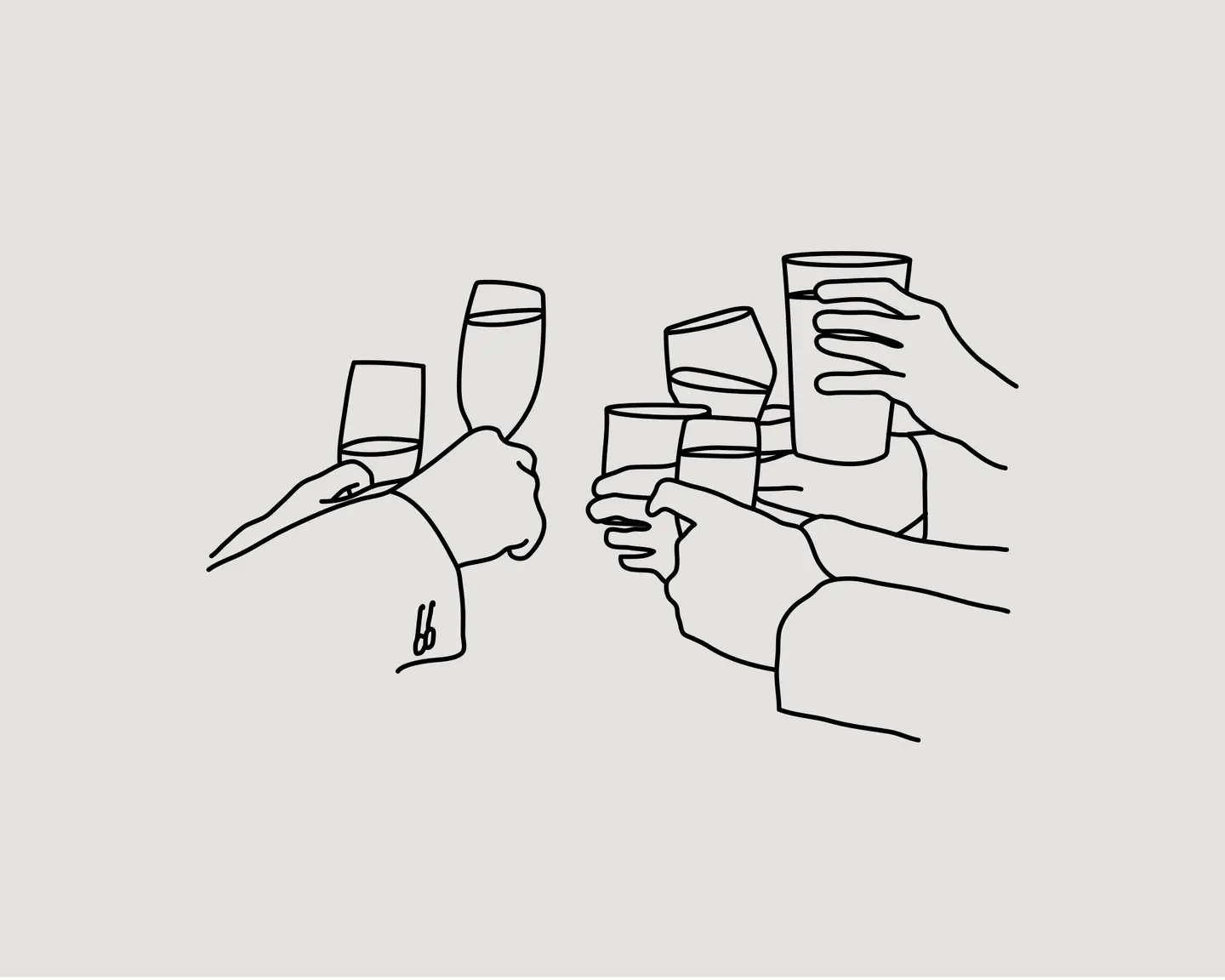Traditional rules of etiquette have, for the most part, been retired. It's difficult to imagine anyone other than my grandmother caring which fork I use, how I fold a napkin, whether or not I excuse myself from the table after dinner. But when it comes to drinking, there are certain rites and rituals that never faded out of style. Raise a glass. Share a toast. Clink. Maintain eye contact. Say cheers, and do it with feeling.
These are the things we do and have done for centuries, millenia, forever. But why? What is their cultural significance?
While the ritual of clinking glasses has evolved to become a means of connection among friends, it started, like most things do, as an act of self-preservation. The custom of touching glasses arose from concerns about poisoning, as clinking coupes and steins together jubilantly would cause each drink to slosh and spill over into the others'. Over time, as fears of contaminated cocktails waned, the ritual took on a new meaning.
According to the International Handbook of Alcohol and Culture, toasting "is probably a secular vestige of ancient sacrificial libations in which a sacred liquid was offered to the gods: blood or wine in exchange for a wish, a prayer summarized in the words 'long life!' or 'to your health!'"
So the next time you're at a wedding and some drunken groomsmen stumbles up to the microphone to toast to the bride and groom, think of it this way: it's not about how your cousin Steve was a total legend in college as much as it is a sacrificial libation to the gods.
Saying "cheers," similarly, holds a deeper meaning. The phrase originates from the old French word chiere meaning "face" or "head." By the 18th century, it was used as a way to express happiness and encouragement. Today, the phrase is entirely symbolic, a practice of camaraderie that is so routine it's almost second nature. As the round of drinks hits the table, it's expected before taking your first sip that you raise your glass, lock eyes, and clink clink clink.
It's a tradition that transcends language and culture. Salute in Italian, skol in Danish, sante in French, cheers in English all mean roughly the same thing: I'm happy to be here, in this moment, with you. And even when our meeting places are digitized and we can't share a drink IRL, these small acts of communion remain.
Cheers to that.
